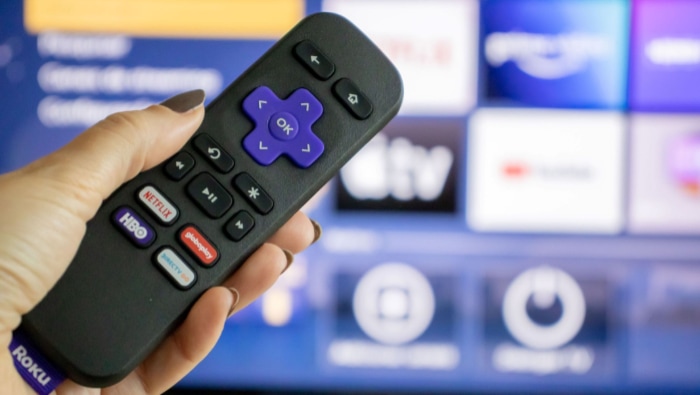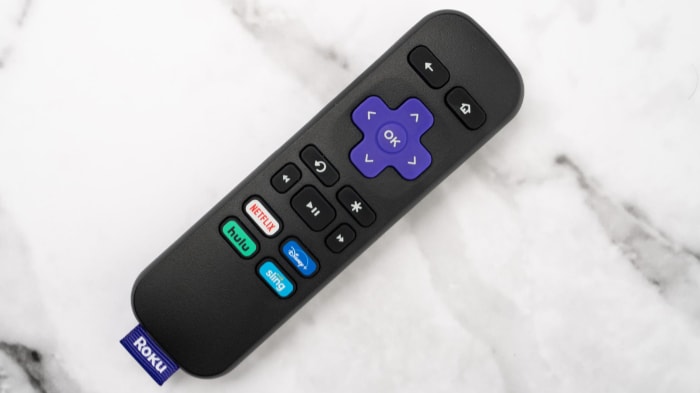Roku Without Internet: Understanding the Limits

Roku has swiftly risen as a leading choice for those eager to transform their television viewing into a seamless streaming experience. This platform offers access to an extensive array of entertainment options, from the latest blockbuster movies to niche TV shows, all at the click of a button.
The Role of Internet in Streaming Services
Streaming services have revolutionized the way we access entertainment, offering a vast selection of on-demand content that can be enjoyed anytime, anywhere. Central to this revolution is the role of the internet, a fundamental requirement for streaming platforms to function.
Unlike traditional broadcasting methods, streaming services rely on the internet to deliver content directly to viewers, providing a level of convenience and choice unmatched by conventional means.
How Streaming Services Operate
At its simplest, streaming is the process of transmitting media content over the internet in real-time, allowing users to watch or listen to videos and music without downloading them first. Streaming services, including those accessible via Roku devices, host vast libraries of content on servers.
When you select a show or movie to watch, the service streams the content from these servers to your device, buffering a few seconds ahead to ensure smooth playback. This method requires a constant internet connection with sufficient speed to handle the amount of data being transferred, especially for high-definition (HD) and 4K content.
Internet Connectivity: A Necessity for Streaming
The uninterrupted internet connection is crucial for streaming services for several reasons. First, it enables the immediate access and seamless playback of content.
Second, it allows streaming platforms to update their libraries, add new features, and provide personalized recommendations based on viewing habits. Finally, a stable internet connection ensures that the quality of the stream is maintained without interruption, buffering, or degradation, which is vital for a satisfactory viewing experience.
Comparison with Traditional Broadcast and Cable Services
Traditional broadcast and cable services transmit content over radio waves and coaxial cables, respectively. These methods do not require an internet connection, as content is delivered directly from the broadcaster to the viewer’s television.
However, this model offers limited flexibility in terms of what and when you can watch. In contrast, streaming services offer an on-demand experience, with the ability to pause, rewind, and access a wide range of content beyond what’s scheduled for broadcast.
The trade-off for this convenience and variety is the dependency on a reliable internet connection, marking a significant shift in how media is consumed in the digital age.
Internet Requirements for Roku
Roku devices transform your television into a portal for streaming content, offering a streamlined way to access your favorite movies, shows, and more. For Roku to fulfill this role effectively, a solid internet connection is not just beneficial but essential.
Why Internet Is Essential for Roku Devices
Roku devices depend on internet connectivity to stream content from various services directly to your TV. Without an internet connection, Roku cannot retrieve data from the cloud, which is where all the content is stored.
This means that the device’s core functionality—streaming video and music from platforms like Netflix, YouTube, and Spotify—becomes inaccessible. Moreover, internet connectivity is crucial for receiving software updates, which include new features, security patches, and performance improvements, ensuring your Roku device runs smoothly and securely.
Types of Content Available Through Roku
Roku offers an expansive range of content, appealing to diverse tastes and interests:
- Streaming Video Services: Platforms such as Netflix, Hulu, and Amazon Prime Video provide access to thousands of movies and TV shows, including exclusives and originals not available elsewhere.
- Music and Podcasts: Services like Spotify and Pandora allow you to stream music, podcasts, and radio stations.
- Live TV and Sports: With subscriptions to services like Sling TV and ESPN+, you can watch live TV, sports events, and news.
- Educational and Lifestyle Content: Access educational platforms, workout apps, and lifestyle channels to learn new skills, stay fit, or explore hobbies.
Each of these content types relies on an internet connection for access and streaming. The content is hosted on servers across the globe, and Roku fetches this content over the internet, delivering it to your TV screen in real-time.
Using Roku Without Internet – Is It Possible?

While Roku devices are designed primarily for streaming content over the internet, there are instances where you might find yourself without an internet connection. Whether due to service disruptions, moving to a new home, or simply cutting down on internet usage, it’s worth exploring what your Roku device can still offer under these conditions.
Limited Functionality Without Internet
Roku devices, even without internet access, can still serve some basic functions. For example:
- Local Playback: If you have content like movies or music saved on an external hard drive or USB stick, you can use Roku’s media player to watch or listen to these files on your TV.
- Antenna Integration: For Roku TVs specifically, if you have an antenna connected, you can still watch over-the-air broadcast television. This allows for the viewing of local channels without needing an internet connection.
However, it’s important to note that these functionalities are quite limited compared to the full spectrum of features offered by Roku with an internet connection.
Features Unavailable Without Internet Connection
Without an internet connection, several key features of Roku become inaccessible, significantly reducing the device’s capabilities. These include:
- Streaming Services: The core function of Roku, accessing streaming platforms like Netflix, Hulu, and Amazon Prime Video, requires an internet connection. Without it, you cannot stream any content from these services.
- Software Updates: Roku devices regularly receive software updates that improve performance, add new features, and enhance security. An internet connection is necessary to download and install these updates.
- Search and Discovery: One of the advantages of Roku is its ability to search across multiple streaming services to find where movies and shows are available. This feature, along with personalized recommendations, is not available without internet access.
- Live TV Streaming: Services that offer live TV streaming, such as YouTube TV or Sling TV, cannot be accessed. This means you won’t be able to watch live broadcasts, including news and sports, through these platforms.
- Voice Commands: Features that require internet connectivity, such as voice search or controlling your Roku device with a smart speaker, won’t function without an internet connection.
In essence, while Roku devices can offer minimal functionality without an internet connection, such as local media playback and over-the-air TV (for Roku TVs), the lack of internet severely limits what you can do with your device. The vast majority of Roku’s features, including streaming, software updates, and content discovery, rely on an internet connection to function properly.
Optimizing Your Roku Experience with Internet
A seamless streaming experience on Roku is heavily influenced by the quality of your internet connection. Given the diverse content available through Roku, from high-definition movies to live sports, ensuring your internet speed and connection are up to par is key to enjoying your device to its fullest potential.
Internet Speed Requirements for Optimal Streaming Quality on Roku
For a smooth streaming experience free from buffering and interruptions, adhering to certain internet speed recommendations is crucial:
- Standard Definition (SD) Content: At least 3 Mbps is recommended for streaming SD content without issues.
- High Definition (HD) Content: Streaming in HD quality requires speeds of at least 5-8 Mbps.
- 4K Ultra HD Content: For content in 4K Ultra HD, speeds of at least 25 Mbps are recommended.
It’s important to note that these are baseline speeds for a single stream. If your household includes multiple devices streaming simultaneously, you’ll need to account for additional bandwidth to maintain optimal performance across all devices.
Tips for Improving Your Internet Connection
Maximizing your Roku streaming experience involves more than just having a fast internet plan. Here are actionable tips to ensure a strong and stable internet connection:
- Upgrade Your Internet Plan: If you frequently experience buffering, consider upgrading to a higher-speed internet plan that can better support streaming demands.
- Use a Wired Connection: Whenever possible, connect your Roku device directly to your router using an Ethernet cable. This can provide a more stable and faster connection than Wi-Fi.
- Position Your Router Strategically: Place your Wi-Fi router in a central location within your home, away from walls and obstructions, to improve signal strength and coverage.
- Limit Bandwidth-Heavy Activities: Try to avoid simultaneous bandwidth-intensive activities, such as large file downloads or online gaming, during streaming sessions.
- Update Your Equipment: Ensure your router’s firmware is up-to-date and consider replacing older models with newer ones that support faster Wi-Fi standards (e.g., Wi-Fi 5 or 6).
By following these recommendations, you can significantly enhance your Roku streaming experience, ensuring that you enjoy your favorite content in the best quality possible without interruption. Remember, a stable and fast internet connection is the backbone of a superb streaming experience, making it well worth the effort to optimize your setup.
Conclusion
Reflecting on the journey through the functionalities and requirements of Roku devices, one central theme emerges with clarity: the critical role of the internet in unlocking their full potential. Roku devices offer an expansive universe of streaming content, from the latest movies and series to live sports and music, transforming any television into a hub of endless entertainment.
However, this transformation is contingent on the presence of a stable and robust internet connection.
The essence of Roku’s appeal lies in its ability to deliver a diverse array of streaming options, customizable to the user’s preferences. Yet, without the internet, Roku users are limited to a fraction of these capabilities, missing out on the vast, rich content that defines the Roku experience.
Therefore, securing a reliable internet connection becomes not just a recommendation but a necessity for those seeking to explore the full depth and breadth of what Roku has to offer.
Moreover, optimizing your internet setup—by considering factors such as speed requirements for different types of content, using wired connections where possible, and ensuring your networking equipment is up to date—can significantly enhance your streaming experience. These steps ensure that your Roku device performs at its best, providing uninterrupted access to high-quality content without the frustration of buffering or connection drops.
Ultimately, the union between Roku devices and the internet is a testament to the modern era of digital entertainment, where convenience, variety, and quality converge. By ensuring a stable internet connection, users can unlock the door to a world where their favorite content is always just a few clicks away.
So, let the power of the internet fuel your Roku experience, and dive into the endless possibilities that await.


